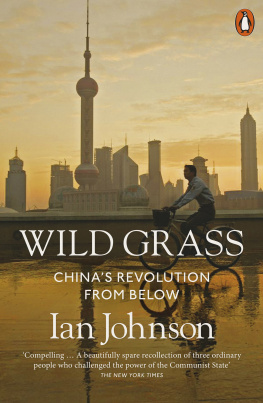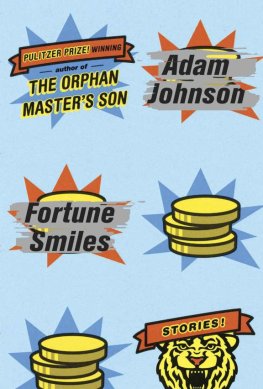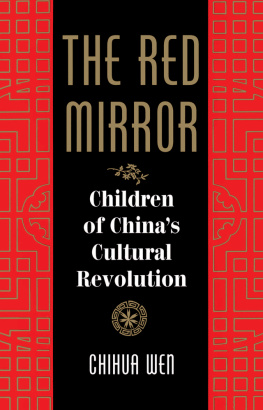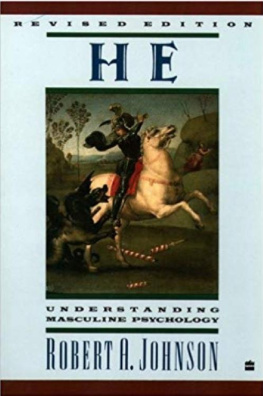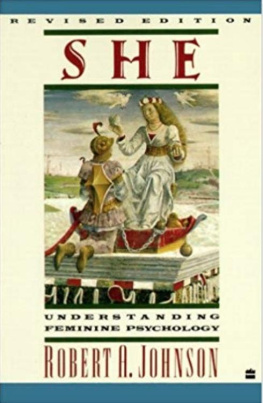About the Author
Ian Johnson is a Pulitzer Prize-winning writer based in Berlin. He spent more than twenty years in China, first as a student and then as a correspondent for the Wall Street Journal, the New York Times and the New York Review of Books. He is the author of two other books that also focus on the intersection of politics and religion: The Souls of China: The Return of Religion After Mao, and A Mosque in Munich: Nazis, the CIA, and the Rise of the Muslim Brotherhood in the West.
Acknowledgments
Readers will have to indulge me for three paragraphs while I thank a host of friends, colleagues and mentors. Although for most people their names will mean little, their sheer number show that behind every book, especially one on such a complicated topic as China, are dozens of people whose moral and intellectual support were crucial.
First, many journalists have nothing but criticism of the Chinese government for hindering their work. That is sometimes justified, but Id like to thank the more liberal members of the Ministry of Foreign Affairs in Beijing for allowing me to serve as a journalist in China for seven years. If the ministrys rules and regulations were followed to the letter, every one of the roughly four hundred foreign journalists in China should be expelled. I thank the ministrys officials for interpreting the rules liberally, thus allowing me and others to take advantage of Chinas blooming civil society and penetrate the country in ways that our predecessors couldnt have imagined possible.
Also thanks to: Mr. Harold Givens and Dr. and Mrs. Jean Battle, who over the years have been generous in their moral support and faith; my adviser at the Freie Universitt Berlin, Erling von Mende, whose wide-ranging intellectual interests allowed me to broaden my understanding of China in a very congenial setting; Stephen Feldman of Asian Rare Books, who provided many stimulating and hard-to-find volumes over the years; the former foreign editor of Baltimores The Sun, Jeff Price, who took a chance on sending me to China in 1994; the participants of the chinapol listserv, which was founded by Rick Baum of UCLA and has provided a wealth of stimulating ideas; Brock Silvers of the Taoist Restoration Society (www.taorestore.org) for insightful conversations on Chinese religion; the Wall Street Journals page-one editing staff for its work on the original Falun Gong series; the Journals foreign editor, John Bussey, whose unwavering faith in the Falun Gong story was crucial during a very trying period; my former bureau chief at the Journal, Marcus Brauchli, who taught me how to write features and helped edit this book; Toronto-based freelance writer Lorne Blumer for his editing work; Jane Kramer of The New Yorker for helping to find a beginning to the book; Chris Calhoun at Sterling Lord Literistic for his support and advice; Dan Frank at Pantheon for his superb editing; Calum Macleod, Leslie Chang, Reginald Chua, Charles Hutzler, Mark Leong and Dali Yang, for conversations and suggestions that helped enormously over the years; and to many Chinese friends and associates who helped out with introductions and, most importantly, unstinting friendshipfor obvious reasons most must go unnamed, but Id like to mention Eldridge Lee and Zhang Lijia for companionship on trips to the Loess Plateau and the rest of China.
Special thanks to: Pete Hessler of The New Yorker, for his extraordinary help in editing this book; my wife, Elke; and finally to my parents, to whom this book is dedicated, for neverwell, rarelycriticizing their unfilial son even as he spent years abroad.
Selected Bibliography
Arlington, L. C., and William Lewisohn. In Search of Old Peking. Hong Kong: Oxford University Press, 1987 (orig. 1935).
Bei, Dao. 13 Happiness Street. In Seeds of Fire, Chinese Voices of Conscience. Edited by Geremie Barme and John Minford. Hong Kong: Far Eastern Economic Review, 1986, p. 2.
Bodde, Derk, and M. L. C. Bogan. Annual Customs and Festivals in Peking. Taipei: SMC Publishers, 1994 (orig. 1936).
Bredon, Juliet. Peking. London: T. Werner Laurie, 1922.
Fairbank, Wilma. Adventures in Retrieval. Cambridge: Harvard University Press, 1972.
. Liang and Lin: Partners in Exploring Chinas Architectural Past. Philadelphia: University of Pennsylvania Press, 1994.
Fang, Ke. Contemporary Redevelopment in the Inner City of Beijing (in Chinese). Beijing: Zhongguo Jianzhu Gongye Chubanshe, 2000.
Han, Feizi. Han Feizi Jijie. Taipei: Shijie Shuju, 1990.
Hsiao, Kung-Chuan. Rural China: Imperial Control in the Nineteenth Century. Seattle: University of Washington Press, 1960.
Human Rights Watch. Dangerous Meditation: Chinas Campaign Against Falungong. New York: Human Rights Watch, 2002.
Liang, Sicheng. Zhongguo Jianzhu Shi. Tianjin: Baihua Wenyi Chubanshe, 1998.
Liang, Ssu-cheng (Sicheng). A Pictorial History of Chinese Architecture. Edited by Wilma Fairbank. Cambridge: MIT Press, 1984.
Lubman, Stanley. Bird in a Cage: Legal Reform in China After Mao. Stanford, Calif.: Stanford University Press, 1999.
Miura, Kunio. The Revival of Qi: Qigong in Contemporary China. In Livia Kohn, ed. Taoist Meditation and Longevity Techniques. Ann Arbor: University of Michigan Press, 1989, pp. 140.
Naquin, Susan. Peking: Temples and City Life, 14001900. Berkeley: University of California Press, 2000.
Singer, Margaret Thaler. Cults in Our Midst. San Francisco: Jossey-Bass, 1995.
Turner, Karen G., James V. Feinerman and R. Kent Guy, eds. The Limits of the Rule of Law in China. Seattle: University of Washington Press, 2000.
Watson, Burton, trans. Han Fei Tzu Basic Writings. New York: Columbia University Press, 1964.
Wu, Liangyong. Rehabilitating the Old City of Beijing. Vancouver, B.C.: University of British Columbia Press, 1999.
Xu, Jian. Body, Discourse, and the Cultural Politics of Contemporary Chinese Qigong, Journal of Asian Studies, vol. 58, no. 4 (1999), pp. 96199.


1
The Peasant Champion
The photo of Ma Wenlin fluttered in my hand, catching the attention of the man sitting across from me on the train.
Hes a lawyer, I said. Im looking for him.
The man was silent for a moment and then said, He looks like a peasant, not a lawyer.
The black-and-white picture showed Mr. Ma staring straight into the camera, his face expressionless except for his faint eyebrows, which arched slightly in a quizzical expression. His hair was short, almost crew-cut, and he had a light stubble above his lips. He wore a plain white dress shirt, buttoned to the neck but with no tie. There was no effort to engage the viewer, no grin, no smile. It was an old-fashioned photo of a man who didnt pose for the camera as modern people do, a man who in the first half of his fifty-nine-year life had been photographed just once or twice.
He represented peasants, I said. In a lawsuit against the government.
Like all second-class sleepers, ours had six bunks and no door, allowing people to wander freely down the car, poking their heads in to visit friends and see who else was on board. But we were alone: the only other person in our compartment, a man in a middle bunk, was snoring lightly and the other passengers bustled back and forth in the corridor, concerned only with finding thermoses of hot water to make tea.

